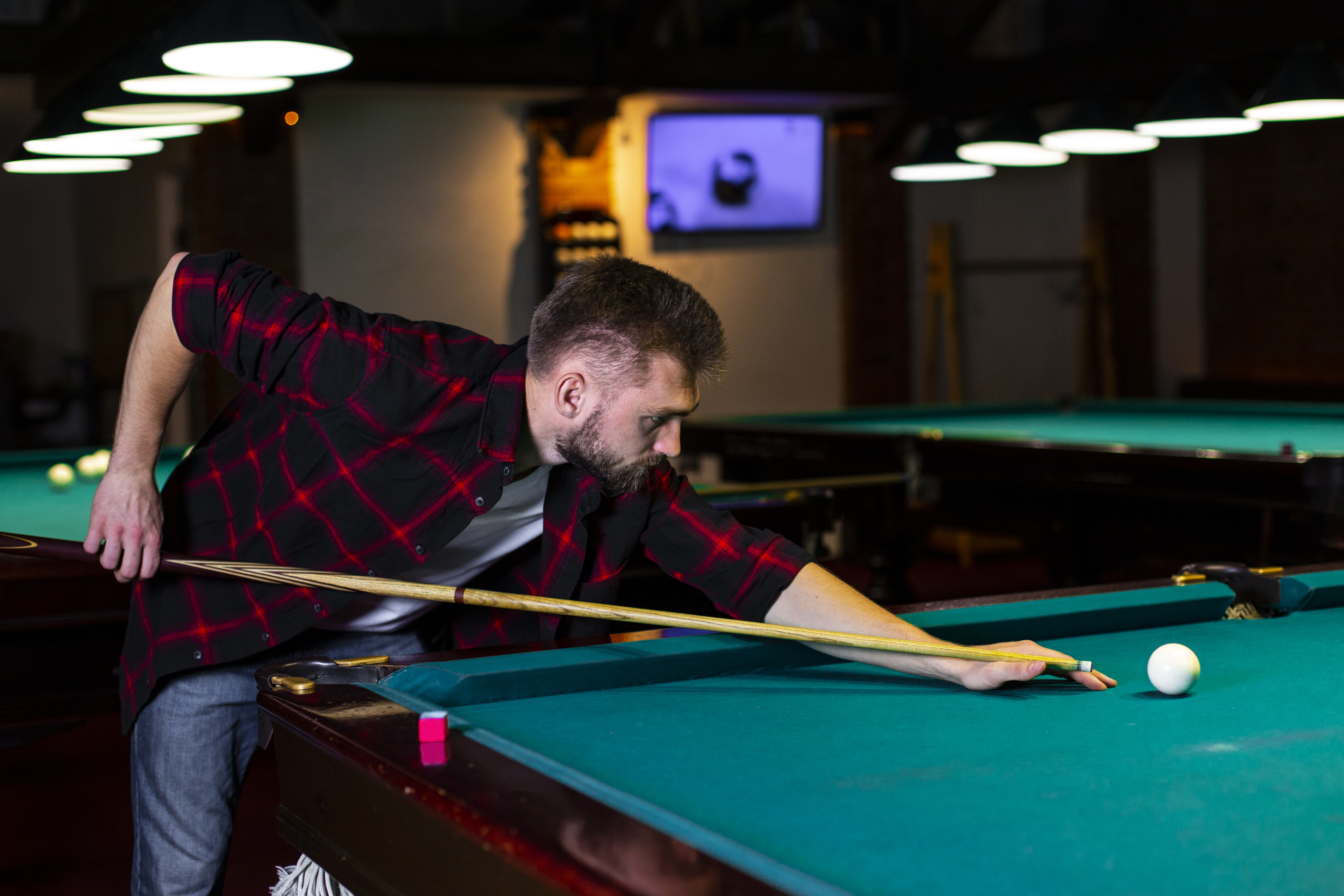A pool table is a significant investment, whether you are a casual player or a serious enthusiast. Purchasing the right table can enhance your gaming experience, providing endless hours of entertainment for friends and family. However, buying a pool table requires careful thought to ensure that it fits your needs, space, and preferences. Here’s a guide on the essential factors to consider before buying a pool table for your game room.
Space Requirements for Your Pool Table
Room Size and Pool Table Dimensions
The first thing to evaluate before purchasing a pool table is the space available in your room. A common mistake is overlooking the size of the table and the playing area required for comfortable play. Pool tables come in different sizes, ranging from 7-foot tables for smaller spaces to 9-foot tables used in professional settings.
In addition to the size of the pool table itself, you must account for cue clearance. The standard cue stick is around 58 inches long, so you’ll need ample room around the table to move freely without hitting walls or furniture. Ensure that the room allows at least 5 feet of clearance on all sides of the table to avoid crowding during play.

Choosing the Right Pool Table Material
Slate vs. MDF Playing Surface
When it comes to the construction of pool tables, the playing surface is one of the most important aspects to consider. Most high-quality tables feature a slate bed, while more affordable options use MDF (medium-density fiberboard). Slate is the preferred material for serious players because of its durability, smoothness, and resistance to warping over time.
MDF, on the other hand, is a cheaper alternative but may warp after long periods of use, especially if exposed to moisture. If you're looking for a long-lasting table that offers professional-level gameplay, a slate pool table is worth the investment.
Pool Table Frame and Legs
The quality of the pool table frame and legs is equally important. Solid wood frames provide excellent durability and stability, ensuring that the table remains sturdy during intense games. Some lower-cost models might use wood veneer or plywood, but these materials lack the same level of strength as solid wood.
Heavy-duty legs are also essential for supporting the weight of the table, especially if it has a slate bed, which can be quite heavy. Opt for pool tables with robust, well-constructed legs to ensure longevity and stability.
Pool Table Felt: Quality and Color Options
The felt, or cloth, covering the surface of your pool table also affects the playing experience. Higher-quality felt provides a smoother and faster roll of the balls, contributing to the accuracy of your shots. Most commercial pool tables use a wool blend, which is durable and offers excellent gameplay.
Felt is available in various colors, so you can select one that complements your game room’s décor. Traditional green is the most common, but modern pool tables come in a range of colors like blue, red, and even custom hues.
Pool Table Design and Style
Traditional vs. Contemporary Designs
Pool tables come in a variety of designs, ranging from classic to contemporary. Traditional pool tables often feature ornate woodwork, leather pockets, and carved legs, making them suitable for rooms with a vintage or formal aesthetic. These designs can add a touch of sophistication to your space.
Contemporary pool tables, on the other hand, offer sleek, modern designs with minimalistic features. They may include metal accents and streamlined shapes, making them ideal for more modern or minimalist spaces. When selecting a pool table, ensure the design matches the overall style of your game room.
Pool Table Finish Options
Another design aspect to consider is the finish of the pool table. Darker wood finishes, such as mahogany or cherry, lend a classic and rich appearance, while lighter finishes like oak or maple provide a fresh and contemporary look. The finish not only impacts the visual appeal but also contributes to the table’s durability.
Many manufacturers offer custom finishes, so you can choose one that perfectly suits your home décor. Keep in mind that the finish should also protect the table from scratches and wear over time.
Pool Table Accessories: What You Need
Pool Cues and Racks
Once you have chosen the right pool table, you will need essential accessories to complete your setup. A set of quality pool cues is a must-have. Standard cue sticks are 58 inches long, but you can choose shorter ones if your room size is limited.
In addition to cues, you’ll need a pool cue rack to store them when not in use. Wall-mounted racks are a space-saving option, while floor-standing racks provide a stylish and practical storage solution.
Pool Balls and Triangle Rack
A high-quality set of pool balls is vital for ensuring smooth play. Pool balls come in various materials, but phenolic resin balls are the most durable and long-lasting. They offer consistent performance and are used in professional tournaments.
You will also need a triangle rack for organizing the balls at the start of each game. Some pool tables come with these accessories, while others require separate purchases.
Conclusion
Purchasing a pool table is not a decision to take lightly. By considering factors such as space requirements, material quality, design preferences, and budget, you can make an informed choice that will enhance your game room for years to come. Remember, a well-chosen pool table is more than just a piece of furniture—it’s an investment in entertainment, skill development, and social interaction. Take your time, do your research, and select the perfect pool table to suit your needs and style.







